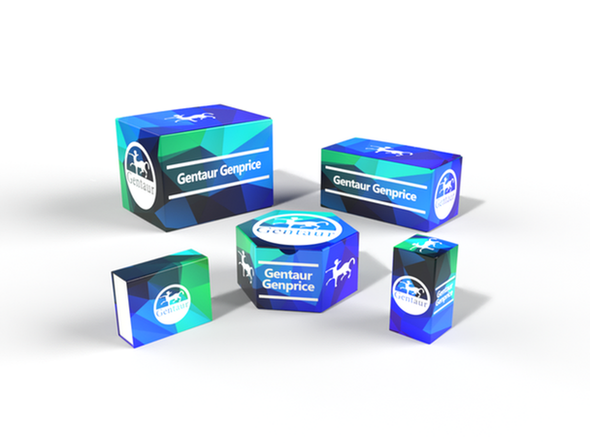740
Mouse Autoimmune regulator (AIRE) ELISA Kit | AE19266MO
- SKU:
- 740-AE19266MO
- Availability:
- Usually ships in 5 working days
Description
Mouse Autoimmune regulator (AIRE) ELISA Kit | AE19266MO | Gentaur UK, US & Europe Distribution
Species Reactivity: Mouse (Mus musculus)
Abbreviation: AIRE
Alternative Name: AIRE1; APECED; APS1; APSI; PGA1; OTTHUMP00000109529|autoimmune polyendocrinopathy candidiasis ectodermal dystrophy
Application: ELISA
Range: 0.156-10 ng/mL
Sensitivity: 0.058 ng/mL
Intra-Assay: ≤4.6%
Inter-Assay: ≤8.3%
Recovery: 0, 92
Sample Type: Serum, Plasma, Other biological fluids
Detection Method: Sandwich
Analysis Method : Quantitive
Test Principale: This assay employs a two-site sandwich ELISA to quantitate AIRE in samples. An antibody specific for AIRE has been pre-coated onto a microplate. Standards and samples are pipetted into the wells and anyAIRE present is bound by the immobilized antibody. After removing any unbound substances, a biotin-conjugated antibody specific for AIRE is added to the wells. After washing, Streptavidin conjugated Horseradish Peroxidase (HRP) is added to the wells. Following a wash to remove any unbound avidin-enzyme reagent, a substrate solution is added to the wells and color develops in proportion to the amount of AIRE bound in the initial step. The color development is stopped and the intensity of the color is measured.
Product Overview: The Autoimmune Regulator is expressed in the thymus. It causes transcription of a wide selection of organ-specific genes. This reduces the threat of autoimmunity occurring by allowing the elimination of autoreactive T cells by the process of negative selection if they are too reactive to self. It is mutated in the rare autoimmune syndrome Autoimmune Polyendocrinopathy Syndrome type 1 (APS-1), also known as Autoimmune Polyendocrinopathy-Candidiasis-Ectodermal Dystrophy (APECED) . Disruption of AIRE results in the development of a range of autoimmune diseases, the most common clinical conditions in the syndrome are hypoparathyroidism, primary adrenocortical failure and chronic mucocutaneous candidiasis. AIRE is expressed primarily in the thymus.
Stability: The stability of ELISA kit is determined by the loss rate of activity. The loss rate of this kit is less than 5% within the expiration date under appropriate storage condition. The loss rate was determined by accelerated thermal degradation test. Keep the kit at 37°C for 4 and 7 days, and compare O.D.values of the kit kept at 37°C with that of at recommended temperature. (referring from China Biological Products Standard, which was calculated by the Arrhenius equation. For ELISA kit, 4 days storage at 37°C can be considered as 6 months at 2 - 8°C, which means 7 days at 37°C equaling 12 months at 2 - 8°C) .










